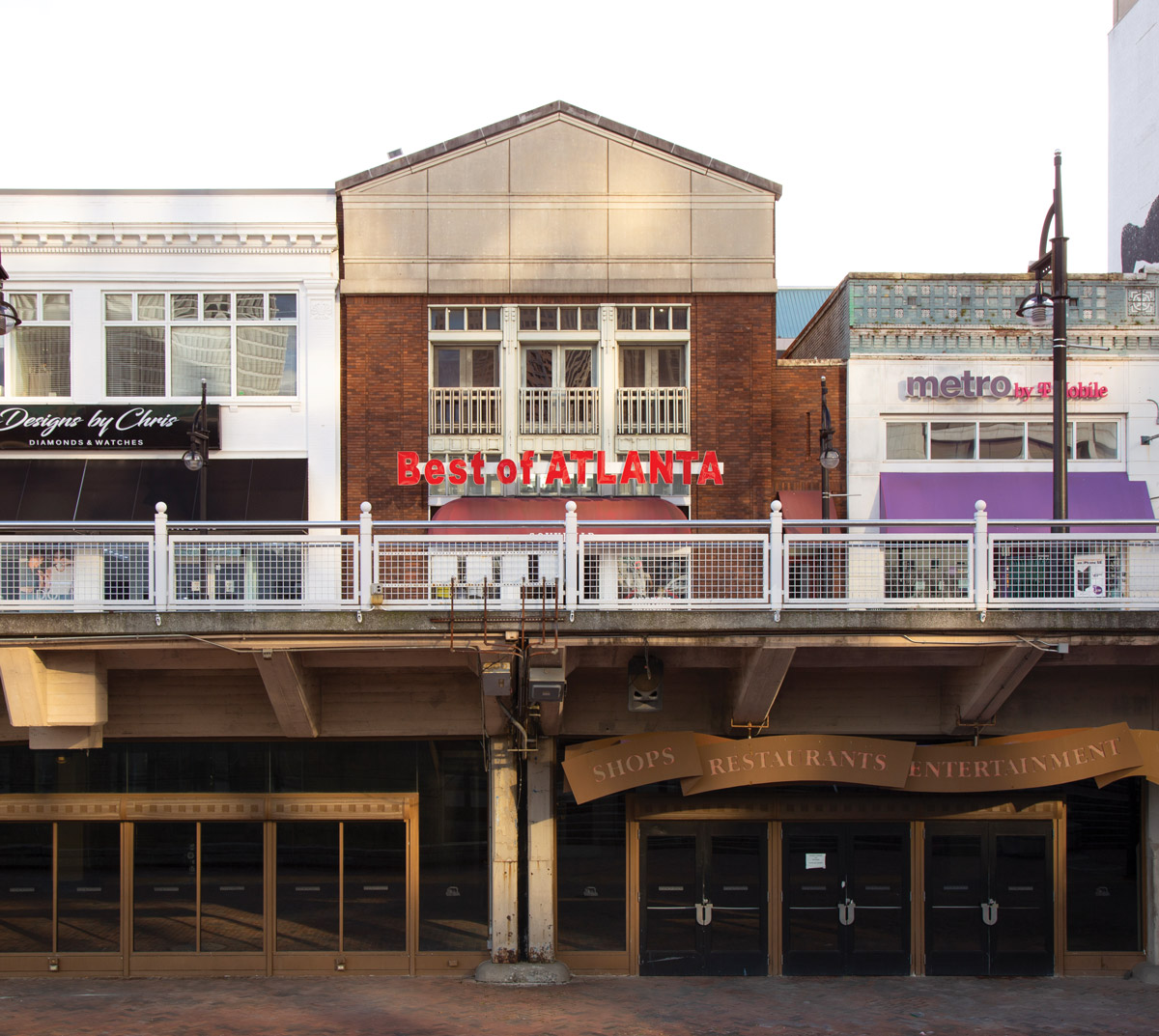
Photograph by Martha Williams
In the middle of 2020, as the Covid-19 pandemic put a question mark on the future of both downtown Atlanta and real-estate development, Shaneel Lalani got a phone call. WRS, the South Carolina–based developer that bought Underground Atlanta in 2017, wanted a loan. Lalani, the founder and CEO of the development firm Billionaires Funding Group, had been looking for a supersized project closer to his home in Decatur, but the call gave him a better idea: He bought the subterranean retail, restaurant, and nightlife district from WRS.
Now, the 31-year-old businessman who’s a newcomer to downtown’s development scene—and to projects the size and scale of Underground—will lead the overhaul of the 400,000-square-foot property located next to the region’s busiest rail station, in the city’s densest neighborhood, and near to billion-dollar redevelopment plans from both CIM Group and the German firm Newport, which owns nearly 50 historic properties on eight city blocks nearby.
Centered on the original city streets before viaducts were constructed over downtown’s railroad tracks, Underground in the late 1960s and 1970s drew thousands of people from across the Southeast to party at Dante’s Down the Hatch, Mine Shaft, and other nightlife spots. After the party moved uptown in the 1980s, the city mothballed the complex. A renovation later in the decade brought crowds back for a spell, but Underground has struggled to remain relevant ever since. Wanting to boost reserves and shed the more than $9 million upkeep and debt payments every budget cycle, then Mayor Kasim Reed sold Underground in 2017 to WRS for $35 million. Experienced mostly in developing Walmart and Verizon stores, the firm pitched a $450 million mixed-use hub with office towers, apartments, a budget hotel for millennial travelers, and shops. But despite moving some lower-level tenants up to the street and wooing the Masquerade music venue, not much changed. Enter BFG and Lalani, who says his firm is well financed to see the project through.
In 1999, Lalani immigrated to the United States with his family from Mumbai when he was nine years old, settling in Tucker. (One of the first places his parents looked for a job after arriving in metro Atlanta, he says, was Underground.) The Lalanis worked retail and laundry jobs to build savings, which they then spent buying gas stations. Shaneel worked after school and in the evenings at the businesses and, after graduating high school, took over one of the gas stations in Gwinnett County. In 2012, he started buying, developing, and leasing gas stations, medical offices, and retail locations throughout Georgia. A few years later, he doubled down on risk by leasing coin-operated amusement machines in gas stations, which benefit the Georgia Lottery. “I would say we are one of the largest operators in the state, in the coin space,” Lalani says.
To bring Underground back to life, first the developer has to bring life back to Underground. On the day BFG started marketing its leasing availabilities, the company received more than 50 inquiries. The indoor food court, which, like the old storefronts, sits vacant, could be the first to open. Lalani wants to keep some aspects of WRS’s plan—such as building a podium for a midrise building over the MARTA and freight-rail tracks bisecting the property—while refining his own vision for the property. BFG has hired Kimley-Horn, the transportation planning consultants that helped make sure a heavy-rail line running under Mercedes-Benz Stadium didn’t disrupt Atlanta United games, and HGOR, a placemaking and landscape architecture firm that worked on the Battery at Truist Park, to create a master plan.
Around the beginning of the year, BFG moved its offices from Norcross to Underground to join the community. That same month, the company bought a 33-story Peachtree Street tower one block north of Underground overlooking Woodruff Park. This month, Lalani and his team plan to start a series of multiday meetings with more downtown residents and stakeholders, including Georgia State University, Central Atlanta Progress, Newport, MARTA, and more. “We don’t want to do something where only we are going to benefit from this property,” he says. “We want to basically make sure that the city, the county, and the state—everybody—benefits from this.”
This article appears in our April 2021 issue.














